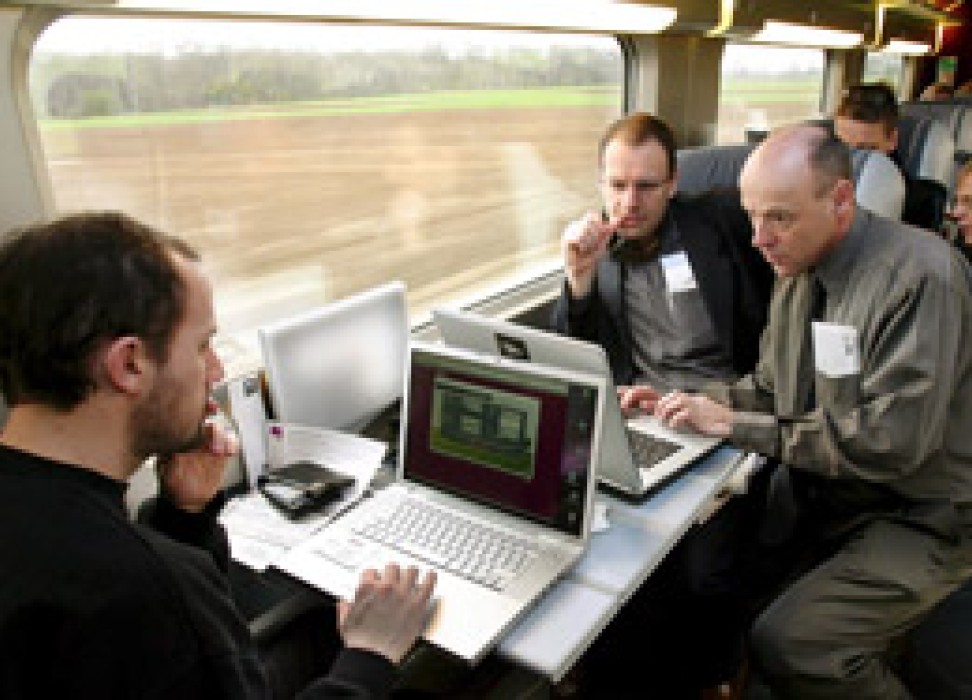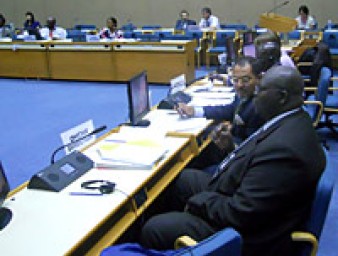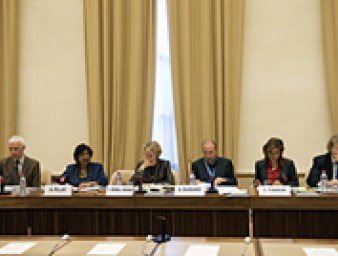Freedom of expression everywhere, including in cyberspace
04 November 2011

“In recent months, we have seen a growing movement of people around the world who are advocating for change – for justice, equality, accountability of the powerful and respect for human rights. The Internet has often played key a role in such movements by enabling people to connect and exchange information instantly and by creating a sense of solidarity,” said UN Special Rapporteur on freedom of expression, Frank La Rue, when presenting his annual report to the UN General Assembly.
The Internet has become a vital communications tool which individuals can use to exercise their right to freedom of expression and exchange information and ideas. Still, La Rue noted that in some countries where Internet access is widely available, online content may be heavily restricted. In other countries, where online content is not restricted, the Internet may not be accessible to the majority of the population.
The Special Rapporteur reminded States that, as a general rule, they must ensure that everyone enjoys his or her right to freedom of opinion and expression by maintaining free flow of information on the Internet, and ensuring that the Internet is available, accessible and affordable to all. However, La Rue recognized that freedom of expression can be restricted in very exceptional cases in line with international human rights instruments.
“Any restriction must be established by law and be in accordance with international standards; must pursue legitimate grounds for restriction as set out in article 19 of the International Covenant on Civil and Political Rights; and be proven to be necessary and proportionate,” stressed La Rue. “Expression such as child pornography, incitement to genocide, advocacy of national, racial or religious hatred that constitutes incitement to discrimination, hostility or violence and incitement to terrorism are all prohibited under international law.”
The Rapporteur advised that decisions to regulate content, such as blocking web sites, must be taken by a competent judicial authority independent of political, commercial or other unwarranted influences. He also recommended that all other types of expression which do not fall under the four exceptional cases delineated above be decriminalized to fully guarantee the right to freedom of expression.
“Governments are using increasingly sophisticated technologies and tactics which are often hidden from the public to censor online content and monitor and identify individuals who disseminate critical or sensitive information, which frequently lead to arbitrary arrests and detention,” La Rue said.
To reduce the digital divide between populations and allow indigenous peoples and linguistic minorities to participate in a truly global society, the UN expert recommended that websites be translated into multiple languages. Moreover, Internet literacy skills should also be included in school curricula and taught to all children at an early age.
“Three-quarters of the world’s population lacks access to the Internet,” La Rue noted. “Although Internet access is not yet recognized as a right in international human rights law, States have a positive obligation to create an enabling environment so that all individuals can exercise their right to freedom of opinion and expression. This includes putting in place a concrete and effective policy and the political will to ensure universal access to the Internet”.
4 November 2011

VIEW THIS PAGE IN:



